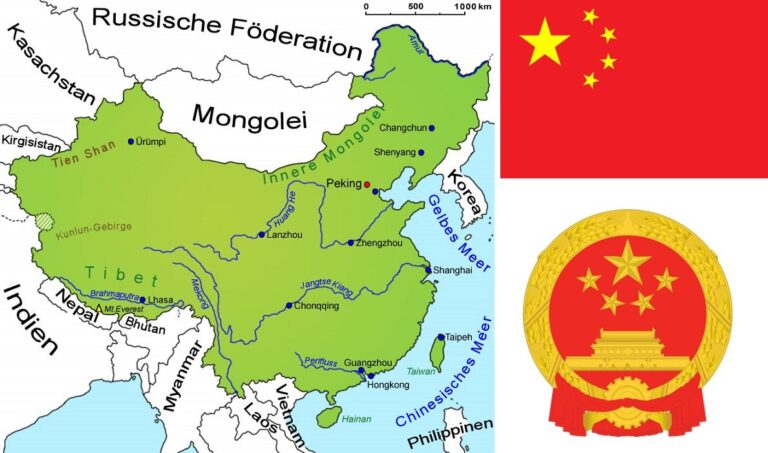China has accused the Philippines of a ship collision near a contested shoal in the South China Sea, escalating tensions between the two nations over the strategically significant and resource-rich maritime area. The incident, reported by CBS News, highlights the ongoing disputes in the region, where overlapping territorial claims have frequently led to diplomatic protests and confrontations. Both countries maintain sovereignty claims in the vicinity, with this latest clash drawing international attention to the fragile stability of the South China Sea.
China Accuses Philippine Vessel of Aggression in South China Sea Incident
Tensions escalated in the South China Sea after Chinese authorities accused a Philippine vessel of initiating aggressive maneuvers near the contested Second Thomas Shoal. According to Beijing, the Philippine boat deliberately collided with a Chinese maritime surveillance ship, prompting a stern warning from the Chinese Coast Guard. The incident has further strained relations between the two nations, both of which claim sovereignty over the resource-rich waters that are vital for regional security and international shipping lanes.
In response, Manila denied any wrongdoing and emphasized its commitment to peaceful dispute resolution. The bilateral disagreement highlights ongoing challenges including:
- Territorial sovereignty claims between China and the Philippines
- Increased military and maritime patrol activities in contested zones
- Potential risks of accidental escalation
- Calls from ASEAN and international actors for dialogue and restraint
| Country | Claimed Area | Recent Incident |
|---|---|---|
| China | Second Thomas Shoal | Accuses collision |
| Philippines | Second Thomas Shoal | Denies aggression |
Analyzing the Strategic Importance of the Disputed Shoal in Regional Maritime Tensions
The disputed shoal in the South China Sea remains a critical flashpoint in one of the world’s most sensitive maritime regions. Situated along several vital shipping routes, this area is not only a strategic military vantage point but also a rich source of fisheries and potential underwater resources. Control over the shoal offers any claimant significant leverage in enforcing maritime claims, which explains the heightened sensitivity and recurrent clashes among regional powers. Recent incidents underscore how such disputed territories can swiftly escalate tensions, threatening broader regional stability and security.
Key Factors Contributing to the Shoal’s Strategic Significance:
- Proximity to Major Sea Lanes: Over 30% of global shipping passes through this corridor, making access control a geopolitical advantage.
- Resource Wealth: Abundant fisheries and untapped hydrocarbon reserves attract competing economic interests.
- Military Positioning: The shoal offers a forward operating base for surveillance and tactical deployments.
- Symbolic Sovereignty: Holding the shoal strengthens political claims over broader maritime zones.
| Aspect | Importance |
|---|---|
| Trade Route Control | Essential for regional economic flow |
| Fisheries | Supports livelihoods and food security |
| Energy Prospects | Potential oil and gas reserves |
| Military Use | Key for surveillance and defense |
Recommendations for Diplomatic Engagement and Conflict De-escalation in the South China Sea
To ease tensions in the South China Sea, all parties involved should prioritize direct communication channels that facilitate immediate dialogue during maritime incidents. Establishing a joint incident response mechanism would help rapidly clarify facts and prevent misunderstandings from escalating into full-blown conflicts. Additionally, multilateral forums, such as the ASEAN Regional Forum, should be leveraged to foster transparency and trust-building measures among claimant states, promoting peaceful coexistence based on international law.
Implementing a framework focused on confidence-building measures (CBMs) will be essential for long-term stability. Suggested CBMs include:
- Regular joint naval patrols to ensure safety and freedom of navigation
- Pre-agreed conduct guidelines for military and civilian vessels
- Joint scientific research initiatives to promote cooperation over resources
| Recommended Steps | Expected Outcome |
|---|---|
| Establishing joint incident response teams | Rapid conflict resolution, reduced escalation |
| Agreeing on safe maritime navigation protocols | Enhanced safety, diminished collision risks |
| Promoting regular multilateral dialogue | Increased mutual trust and understanding |
Closing Remarks
The incident near the disputed shoal in the South China Sea marks the latest in a series of tense encounters between China and the Philippines, underscoring the ongoing volatility in the region. Both nations continue to assert their territorial claims, raising concerns about maritime security and the potential for further confrontations. As diplomatic efforts unfold, the international community remains watchful of developments that could impact regional stability and broader geopolitical dynamics.




